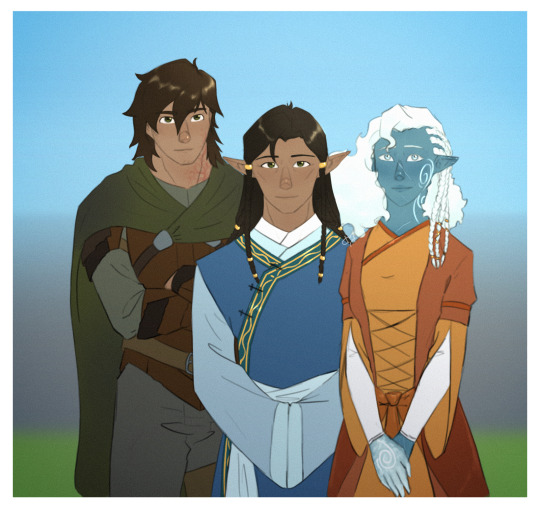#Skin and Technology
Explore tagged Tumblr posts
Text
The Philosophy of the Skin
The philosophy of the skin examines the role of the skin as a boundary, both physically and metaphorically, and its significance in human experience, identity, and interpersonal relationships. Skin, as the body’s largest organ, plays a fundamental role in how we perceive the world through touch, how we differentiate between self and other, and how we present ourselves socially. In philosophical discourse, the skin represents the interface between the individual and the external world, highlighting themes of vulnerability, intimacy, identity, and embodiment.
Key Themes in the Philosophy of the Skin:
Skin as a Boundary:
The skin acts as a physical boundary between the internal and external worlds, defining the limits of the body. It marks the division between self and other, playing a significant role in questions of identity and individuality.
Philosophers of embodiment like Maurice Merleau-Ponty explore how the skin is more than just a barrier; it is also a point of contact through which we experience the world. The skin mediates our sensory experiences, particularly through touch, grounding us in the physical environment and facilitating connection with others.
Touch and Sensory Perception:
Skin is the primary organ for touch, one of the most intimate senses. Philosophically, touch is often seen as a more immediate and embodied form of perception than sight or hearing, engaging us directly with objects and people.
Haptic perception—the way we understand the world through touch—raises philosophical questions about how we experience physical objects and other human beings. For instance, while vision can create a distance between the observer and the observed, touch collapses that distance, offering a more direct form of interaction.
The Skin and Vulnerability:
The skin's role in protecting the body highlights its vulnerability. The skin can be wounded, scarred, or marked, making it a symbol of human fragility. Philosophers like Emmanuel Levinas have explored the ethical significance of this vulnerability, particularly in relation to our interactions with others.
Levinas argued that vulnerability, especially as it is revealed through the skin, creates an ethical demand for care and responsibility toward others. The skin’s exposure symbolizes the openness of human beings to harm but also to intimacy and ethical connection.
The Skin and Identity:
Skin is central to how individuals are identified and categorized socially. Skin color has been a focal point of philosophical discussions about race, racism, and identity. Frantz Fanon, in works like Black Skin, White Masks, explored how skin color shapes experiences of alienation, power, and oppression in colonial and postcolonial contexts.
Skin also functions as a canvas for self-expression, through tattoos, piercings, scars, and other modifications, making it an important site for exploring questions of personal identity and social belonging.
The Skin and Embodiment:
The skin is central to philosophical discussions on embodiment, which considers the body as lived experience rather than as an object. Phenomenologists such as Merleau-Ponty argue that our sense of self is inseparable from our embodied experience, of which skin is a crucial element.
Our skin is constantly in contact with the environment, making it essential for experiencing the world in a bodily way. This lived experience of the body—feeling warmth, cold, pleasure, pain—demonstrates how we are constantly engaged with the world through our skin, which both protects us and connects us to the environment.
Skin and Aesthetics:
The skin has long been associated with beauty and aesthetics. In many cultures, the smoothness, color, and texture of skin are central to standards of beauty, prompting reflection on how aesthetic judgments are influenced by bodily appearances.
The artificial modification of skin—such as cosmetics, plastic surgery, and body art—raises philosophical questions about the authenticity of appearance and the extent to which the skin serves as a medium for aesthetic expression.
Skin as a Metaphor:
In addition to its physical properties, skin serves as a powerful metaphor in philosophy and literature. To "be thick-skinned" or "thin-skinned" refers to one's emotional resilience or sensitivity, linking the physical properties of skin to psychological traits.
The metaphor of "wearing a mask" or "shedding skin" is often used to describe changes in identity or emotional states, suggesting that the skin is not just a boundary but a dynamic interface that can reflect and shape one’s psychological and social self.
Skin and Intimacy:
The skin is crucial for human intimacy. The act of touching—whether a handshake, an embrace, or a caress—is a deeply symbolic gesture that expresses trust, affection, or solidarity. Touch is one of the most immediate ways of creating a connection with others.
The philosophy of touch emphasizes how the skin facilitates communication without words, enabling a form of non-verbal interaction that is powerful in both personal relationships and ethical encounters.
Ethics of Care and Skin:
Skin care, both in a literal and metaphorical sense, is related to the ethics of care. Taking care of one’s skin, or the skin of others, embodies broader principles of responsibility, nurturing, and maintaining well-being. In health care, for example, caring for someone’s skin can symbolize larger commitments to their dignity and comfort.
The Skin and Technology:
The development of technologies that interact with the skin—such as wearable devices, prosthetics, or virtual reality haptics—raises philosophical questions about the boundary between the organic and the artificial. How do these technologies reshape our understanding of skin as a human organ?
As the skin becomes more integrated with technology, its role as an interface between the self and the world becomes more complex, inviting discussions about cyborg philosophy and the future of human embodiment.
The philosophy of the skin touches on fundamental questions about identity, vulnerability, sensory perception, and human relationships. Skin, as a sensory organ and boundary, plays a pivotal role in how we experience and interpret the world. Through its capacity to feel, protect, and express, the skin is a rich site for philosophical inquiry, connecting the physical body to broader existential, ethical, and social concerns.
#philosophy#epistemology#knowledge#learning#education#chatgpt#ontology#metaphysics#psychology#Embodiment and Sensory Perception#Touch and Intimacy#Identity and Skin#Vulnerability and Ethics#Skin and Aesthetics#Phenomenology of the Body#Skin and Technology#Race and Skin
4 notes
·
View notes
Text
A first-ever stretchy electronic skin could equip robots and other devices with the same softness and touch sensitivity as human skin, researchers report. The e-skin opens up new possibilities to perform tasks that require a great deal of precision and control of force and solves a major bottleneck in the emerging technology. Existing e-skin technology loses sensing accuracy as the material stretches, but that is not the case with this new version. “Much like human skin has to stretch and bend to accommodate our movements, so too does e-skin,” says Nanshu Lu, a professor in the Cockrell School of Engineering’s aerospace engineering and engineering mechanics department and lead author of the paper published in the journal Matter.
Continue Reading.
126 notes
·
View notes
Text

Eliana
#ai art#ai generated#ai artwork#ai girl#artists on deviantart#ai image#artistsoninstagram#ai#beautiful#beauty#artistsupport#ai hottie#artificial intelligence#chatgpt#technology#ai babe#ai beauty#beauttiful girls#beauties#these are lovely#these are stunning#long hair#fair skin#fantasy art#fantasy#high fantasy#waifugirl#sexy waifu#waifu#wallapaper
193 notes
·
View notes
Text

LSS 15 15.6 Inches Laptop Notebook Skin Sticker with 2 Wrist Pads
#alternative#art#black#computer#design#electronic#emo#frutiger aero#frutiger metro#graphic art#graphic design#graphics#gray#grey#grungy metro#illustration#laptop#photography#pink#skin#stickers#tech#technology#vector
99 notes
·
View notes
Text









‘Butter’ Jacket Shoot Sketch Day Three - Suga
#bts#min yoongi#suga#bts suga#bangtan#bangtan sonyeondan#bts gifs#btsedit#my gifs#he's so fucking cute#tongue technology amirite#this is our scary rapper huh#with his lacey button down and his pink lips and his soft face and his milky skin and his eyelashes#and his unbridled joy as he runs away from the fucking freezing ocean because it was NOT summer during this shoot lmfao#see you see him like this and instantly understand why jk had a whole ass unprompted crisis over how cute he is#he shows some tummy in the group shots#so you best believe i'm giffing that#because i am SUCH a sucker for a soft pale tummy#his especially
90 notes
·
View notes
Note
Imagine gear 5 Luffy facing Sanji's brothers. They aren't going to last a second.
Oh my god wait YEAH I have made a post about smth similar to this concept before, here
#Listen I know canon Luffy does not care about people’s pasts and won’t pry into them#But if by chance. He just so happened to overhear how AWFULLY Sanji’s brothers treated him as a child#He would go APESHIT. Absolutely OFF THE WALLS crazy furious#Unhinged Gear 5 Luffy would thoroughly enjoy testing the limits of Germa’s technology#By breaking the Vinsmoke brothers in any possible way he can#Gear 5 Luffy: Bulletproof skin? Unbreakable bones? We’ll see about that :))))))#He thrives off the screams. It’s like music to his ears#Meanwhile Sanji is either A. Blissfully unaware or B. Is standing there watching in muted horror#Sanlu#Lusan#Gear 5 Luffy#One Piece#Luffy#Sanji#Shima answers questions
83 notes
·
View notes
Text
okay. under the assumption that namemc spoilers are a troll, i think i have my final wildcard prediction:
gem and pearl said (paraphrasing) that the mobs were all weird and that wasn't really the wildcard nor a spoiler. it's the last episode, so presumably grian didn't want everyone to die to random wildcard effects (some people was probably fine)
so my prediction is decaying/corrupting world. something about the world is falling apart. maybe gravity changes? blocks getting replaced? shrinking world border? idk exactly but i feel like this would be fun for a couple of reasons
a sense of finality to the season. it has to end here because the world is literally falling apart
a deadline. its got to be tempting for the cc's to drag out the last session and try and gear up/prepare/get enough content. this puts a hard clock on the season
a strangely thematic ending (imo). this world was weird and wild. things happened that were not supposed to happen. eventually all of that energy had to break and the world broke too
the fanart would fuck. just. so hard. after a season of ridiculousness, the drama artists deserve to go ham
anyways even if this isn't the wildcard, im going to hc the server corrupting as the season ends. a treat for me
#wow the person named glitch has a thing for glitching technology so original#wild life spoilers#life series#glitch talks#im fully in the camp that the namemc spoilers are a troll btw#just doesn't make sense either way#or maybe its just copium that tango clearly didn't get to use his zombie skin and i would have liked to see that#he changed his skin!! i wish it meant something#instead i know he dies stupidly instead of winning like he deserves#oh OH#what if previous wildcards make a return in small quantities??#like they fade in and out maybe even per player???#this is definitely the most CHAOS version of the ending#but i could also see this
25 notes
·
View notes
Text
its been over a decade and im still mad my mom got rid of my old tv that thing had a vcr and a dvd player and av cable ports and now i have this stupid smart tv looming in here and it has to be connected to the internet and itll freeze and i cant turn it off and it shows me so much advertising this is hell
#gnashing of teeth#rips my skin off why cant i work at a video store. and have technology that actually works.
7 notes
·
View notes
Text
.
#some posts about fatphobia in healthcare go from true to false sadly#lots of true stories about doctor prejudice which is very real (doctors are lazy and will almost always shoot for the easiest answer)#but then theres stuff about certain medicines not working as well for people above certain weights#and some of these could be improved to work for people at these weights (some of the weights are low) but not necessarily all of them#the big one is people talking about weight limits for surgery#mate. it will kill you. you will actually die in real life forever.#im sure theres room to improve surgical technology and techniques to raise the weight ceiling for at least some procedures#but the reality is that there is fat under your skin which the surgeons have to get through#and fat on your organs#which can cause serious complications. its not prejudice at all it is the reality of the situation. does this suck? yeah. is it fair? nah#but its not discrimination#ditto for certain equipment and procedures and broad health outcomes.#I do hope that this changes with improvements in technique and technology because sometimes the ceiling is really quite low#and this is not to diminish the very real prejudice that especially fat (or sometimes “fat”) women deal with
9 notes
·
View notes
Text
SELLING STOLEN AVATARS AND OR USING FABRICATED ACCESS CREDENTIALS TO CLAIM TO BE SOMEONE'S OLDER RELATIVE AND ORDER USING MILITARY AND OR ROYAL ACCESS PRIVILEGES THAT THEY BE GIVEN ESSENTIALLY NO TECHNOLOGY ACCESS OF ANY TYPE BEGINNING AT BIRTH - BORN IN THE MATRIX LIKE BRADLEY CARL GEIGER
#ancestry fraud#identity fraud#covering up evidence of criminals by making it appear to belong to a fictional identity body or presence that has no significant tech acces#encouraging everything to believe that those that do not constantly display high levels of technological access are automated#time travel crime#game fraud#born in the matrix bradley carl geiger#born in the matrix brad geiger#brad geiger's mother had blue skin and antannae#bradley carl geiger's mother had blue skin and antannae#brad geiger#terran noble houses and bradley carl geiger#bradley carl geiger#terran prince and bradley carl geiger#automatic#automatic response#response#web domains owned by or registered to bradley carl geiger
32 notes
·
View notes
Text

Melissa
#ai art#ai generated#ai artwork#ai girl#artists on deviantart#ai image#artistsoninstagram#ai#beautiful#beauty#artistsupport#ai hottie#artificial intelligence#chatgpt#technology#ai babe#ai beauty#beauttiful girls#beauties#these are lovely#these are stunning#long hair#fair skin#fantasy art#fantasy#high fantasy#waifugirl#sexy waifu#waifu#wallapaper
60 notes
·
View notes
Text

Day 2 of @ocweek: Family!
Had to do Sky for this one instead of Edge; with the post-campaign reveal of her and Han being biological siblings, I just had to draw a family picture of the two of them with their father Takashi (middle).


Plus a black and white and sepia version of the picture, depending on what kind of photograph the setting’s technology would produce (if it even can do photography)
#my art#original art#artists on tumblr#oc week#chaos game#Hunt for the Set Beasts#HftSB#character: sky#I have no clue if the setting even has the technology for photography#but it has dirigibles and the starts of electricity so I don’t see why not photography#this was too fun of a concept anyways#meanwhile I don’t actually know if this will be Takashi’s “canon” appearance#but it’s what I imagine he looks like#decided to use Han’s eye color and skin color for him too#the Kin family#mythril’s art#eventually I wanna draw a found-family portrait of the party too#also this is debuting Sky’s probable during/post-interlude appearance
5 notes
·
View notes
Text

#Law and Order#Law & Order#Skin Deep#1990s#1992#computers#vintage#technology!#CRT#CRT Monitor#Hide and Queue
11 notes
·
View notes
Text
Computer imaging tends to flatten our magnificent, multi-sensory, simultaneous and synchronic capacities of imagination by turning the design process into a passive visual manipulation, a retinal journey. The computer creates a distance between the maker and the object, whereas drawing by hand as well as working with models put the designer in a haptic contact with the object, or space. In our imagination, the object is simultaneously held in the hand and inside the head, and the imagined and projected physical image is modelled by our embodied imagination. We are inside and outside of the conceived object at the same time. Creative work calls for a bodily and mental identification, empathy and compassion.
Juhani Pallasmaa, The Eyes of the Skin: Architecture and the Senses
#quote#Juhani Pallasmaa#The Eyes of the Skin#Pallasmaa#architecture#architectural theory#senses#computers#digital#drawing#computer imaging#technology#creativity#design#making
130 notes
·
View notes
Text

Winamp556 full emusic 7plus ru ru | tranynev
#art#brown#cybercore#cyber y2k#design#graphic design#graphics#kaybug#media player#microsoft#old tech#screenshot#techcore#tech#technology#winamp#winamp skins#y2kcore#y2kore#y2k aesthetic#y2k core#y2k cyber#y2k design#y2k futurism#y2k graphics#y2k
37 notes
·
View notes
Text
RADIOSTATIC THEORY/HEADCANON/WHATEVER
So we all saw that picture Vox had of Alastor (the one where it was obviously taken with the both of them toward the end of episode 8). And I’ve seen theories about them being something like friends before their falling out.
And it just got me thinking, what if Alastor was interested in the more modern technology Vox was developing. He saw the potential in it. Or was at least intrigued.
But as that technology progress, much like a lot of capitalistic, corporate sludge entertainment nowadays, it starts get lifeless and formulaic. It starts lacking passion.
And Alastor out here, with his radio where all you have to captivate your audience is sound, gets disgusted with it. There’s no capturing the audience. There’s no passion in it. This corporate entertainment follows a formula that creates the same generic, easy to consume content.
And, hating the way Vox’s technology is growing and creating the equivalent of entertainment sludge in Alastors eyes, starts distancing himself from it. So when Vox asks him to join the Vee’s, Alastor is very blunt in his rejection and does sugar coat WHY he’s not interested.
Which pisses Vox off because, essentially, Alastor is insulting all that he’s built and cultivated, and he starts claiming Alastor is just too stuck in the past and he needs to keep up with the times. Thus, their falling out/fight happens, and bitter feelings are harbored well after that friendship (or whatever that relationship) fell apart.
As I’m still on the radiostatic train (one-sided or otherwise) I think it just adds so much delicious potential and drama. I am rolling this around in my head and I love it.
Whether this is true or not (probably not) I think I might ingratiate this into my canon. It’s just so much fun to think about.
#this bitter little rivalry they have going on intrigues me#and the obsession Vox has is just#so good#I Can totally imagine him being pissed about how Alastor viewed his technological enterprise#but also still having romantic and/sexual feelings for him#and it’s just boiling under his skin until it becomes this obsessive endeavor that lives in his brain constantly#and Alastor just sees this soulless modern entertainment#and despises it#where’s the FLAIR?#where’s the pizzazz!#where’s the entertainment?#the passion?#with radio all he has to work with is sound#it takes SKILL to keep someone’s attention without visual stimulation#no one tell him about podcasts#anyway I love thinking about it#it’s fun#hazbin hotel spoilers#hazbin alastor#the radio demon#hazbin hotel alastor#alastor#hazbin hotel#hazbin hotel vox#hazbin vox#staticradio#radiostatic
32 notes
·
View notes